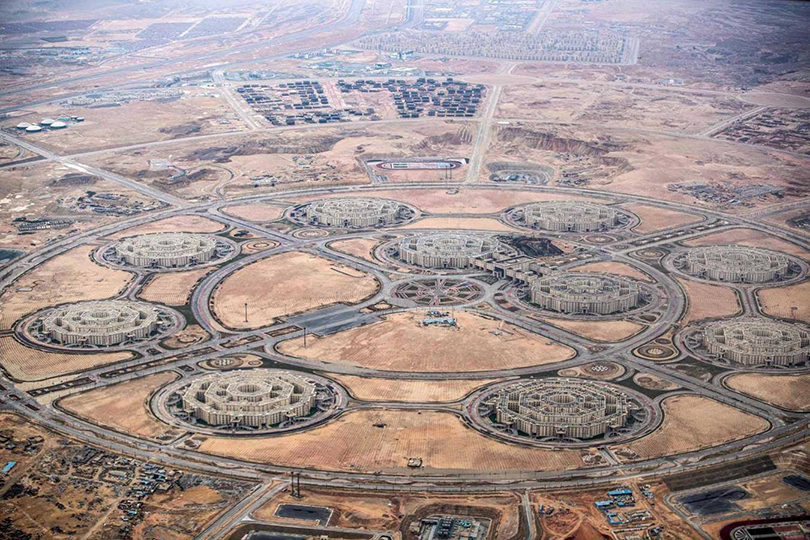Two of Egypt’s most daunting strategic challenges are population growth and the scarcity of arable land. Almost all of Egypt’s 100 million people call the Nile Valley home, and all of Egypt’s agricultural production occurs along the ribbon of the Nile and its Delta. Severe overcrowding, a massive housing deficit, loss of arable soil to incessant urbanization, dense vehicle traffic, and worsening air pollution are among the many consequences. With 95 percent of the country’s territory untouched, it is no surprise that for decades Egyptian leaders have sought to expand urban areas and agriculture into the desert.
Horizontal expansion is extremely costly, but every president since 1954 has pressed forward nonetheless, as a recent report by Carnegie’s Yezid Sayigh on Egypt’s military economy details. If the effort were to succeed, it could prove a boon for Egypt’s economic and human development. New farmland and cities could reduce the country’s reliance on importing much of its food and bring it closer to fulfilling the aspirations of various social sectors for upward mobility. But, as this video asks, is it a realizable dream worth the massive investment of scarce funds, or just a costly mirage?







Comments